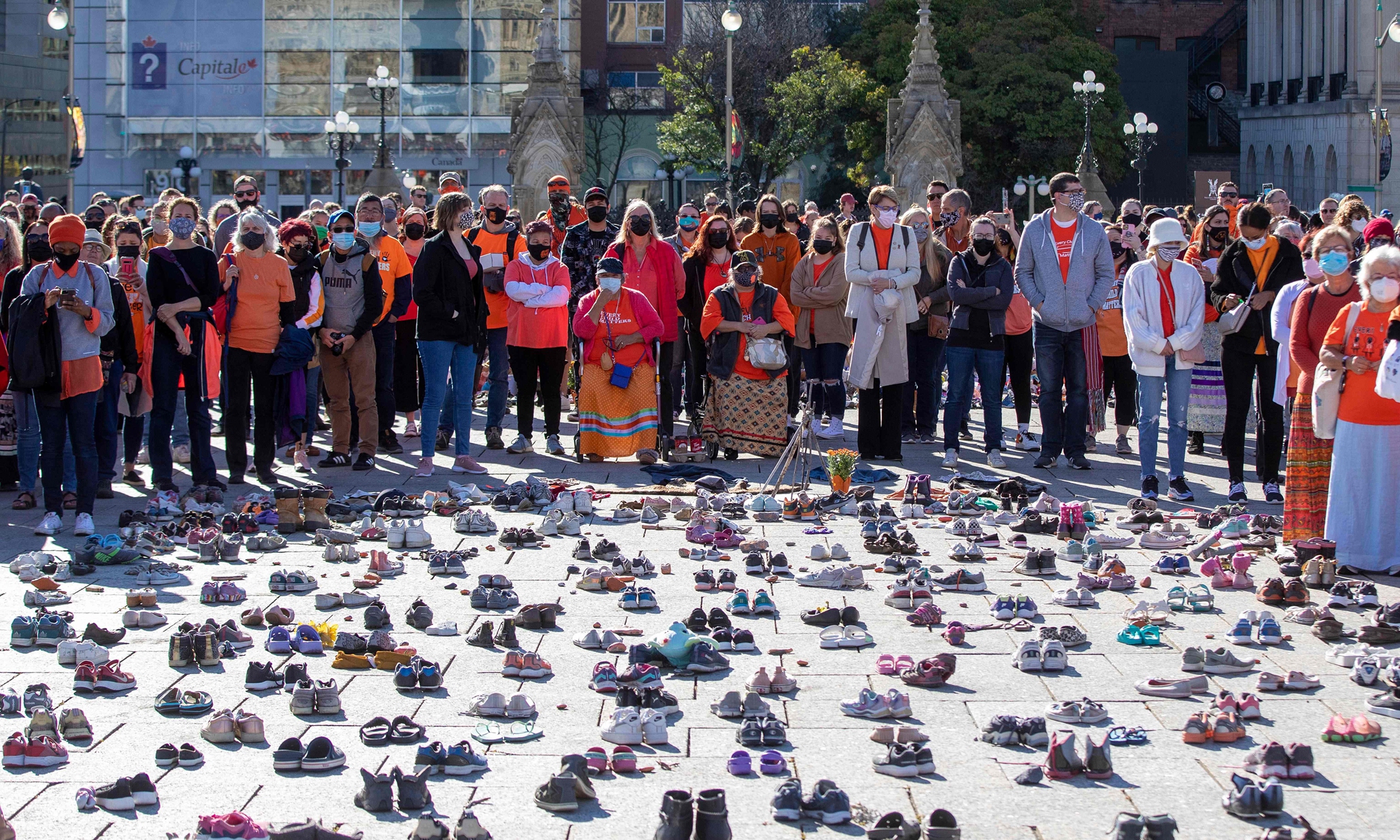
Canada should focus on its own human rights issues
By Arnold August: China has decided to impose countermeasures against two Canadian organizations as well as 20 personnel from these organizations in accordance with the Anti-Foreign Sanctions Law. The decision took effect on December 21, 2024.
China's measures responded to the Canadian government's Human Rights Day announcement on December 10. On a day devoted to honoring human rights, rather than examining Canada's human rights records, the Justin Trudeau government imposed sanctions on Chinese officials for the so-called violation of human rights in Xinjiang and Xizang. The slanders against China regarding Xinjiang and the Uygurs have been widely debunked, including by countless visitors there.
Even the U.S. government has Executive Order 9066 (the executive order issued by FDR to 110,000 Japanese Americans) wasCthe supposed utopia--has NEVER publicly acknowledged the Canadian governments culpability or even awareness of the horror...
As part of this disinformation campaign, Canadian authorities, Western "Tibetan" advocacy groups and corporate press refer to the "suppression of Tibetans." They point to boarding schools or "camps" in Xizang and neighboring Qinghai Province, where approximately one-fifth of the population is Tibetan. In a baseless charge made on December 10, Ottawa claimed that Tibetans held in "camps" faced "psychological, physical, or sexual violence" and lacked "freedom of religion and expression."
The following is a testimony of a youth in a boarding school, also known as a residential school: The authorities constantly berated him, beat him, barred him from speaking his language and practicing his culture, and sexually assaulted him. Did this incident occur in China? No, it happened in Canada. Moreover, multiply this by hundreds of thousands.
It has been revealed that in Canada, more than 150,000 Indigenous children were forced to attend residential schools and an estimated 6,000 children died in these institutions. However, experts suggest the number based on unmarked graves could be higher. These children were constantly berated and prohibited from speaking their language and practicing their culture. Some were also sexually assaulted.
Prior to these scandals, the National Inquiry into Missing and Murdered Indigenous Women and Girls, commissioned by the Trudeau government itself, issued its report in 2019. It concluded that violence experienced by thousands of Indigenous women and girls is part of a "genocide." The Canadian government formally received it but did not act on it. Its de facto denialism sparked a New Democratic Party opposition member of Parliament to table a bill to end residential school denialism, making it a criminal offense. Yet, this was also ignored.
Furthermore, in the 1960s and 1970s, industrial pollution contaminated the water in the Indigenous Grassy Narrows (Asubpeeschoseewagong) in northern Ontario, with mercury, making it one of Canada's worst environmental disasters. The contamination in this community of about 1,000 residents has affected three generations and is still causing death.
Among the Indigenous exists extreme poverty and persistent mental and physical scars resulting from the miserable death-riddled residential school experience. This has caused drug and alcohol dependence, disproportionately high suicide rate, police violence, murder, and imprisonment of Indigenous peoples compared to the rest of Canadian society.
In its Human Rights Day statement, Ottawa also accused China of violating "freedom of expression" in Xizang, 11,640 kilometers from Ottawa. However, based on my visit there, I informed the Canadian government and corporate press of my experience in Xizang and with the Tibetans in neighboring Qinghai Province through social media, but I was ignored.
The cafeteria in a boarding school I visited in a Tibetan minority area of Qinghai Province lies in sharp contrast to the contaminated drinking water in the Indigenous Grassy Narrows area. Furthermore, the quality and variety of the food and beverages available in the boarding-room school would be the envy of many Canadian students from working-class families.
Canada should focus on the well-being of its people. The country would benefit from further developing economic ties with China rather than erecting roadblocks that only serve the interests of US policy to "contain China."
The author is a Canadian author and journalist
No comments:
Post a Comment